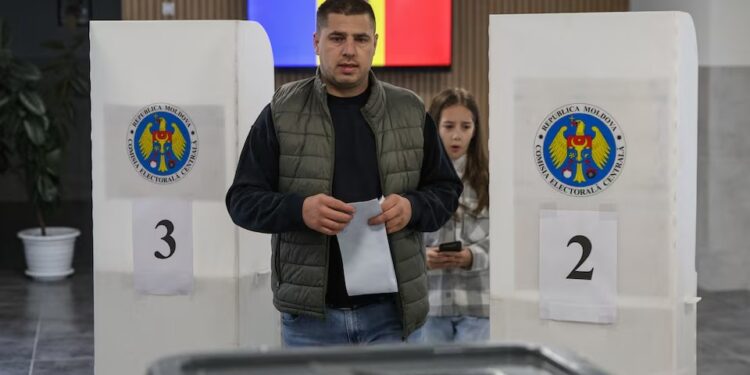Voters in Moldova are casting their ballots in a pivotal parliamentary election that could shape the country’s geopolitical direction for years to come. The vote pits pro-European parties against those favouring closer ties with Russia, with the outcome likely to influence both domestic reforms and foreign policy.
A divided political landscape
The election comes amid heightened tensions between Europe and Russia, with Moldova positioned directly in the middle. Pro-European parties have campaigned on promises of judicial reform, anti-corruption measures, and stronger integration with the European Union. In contrast, pro-Russian factions have focused on maintaining economic and cultural ties with Moscow, while criticising what they describe as Western interference.
High voter turnout expected
Early reports suggest significant voter engagement, particularly in urban areas where younger Moldovans lean towards pro-European parties. Rural regions, however, remain strongholds for pro-Russian candidates, reflecting deep divides across the country. Observers note that turnout levels will be crucial in determining which side secures the majority in parliament.
International attention
The election has drawn close scrutiny from international bodies, with the European Union and the Organisation for Security and Co-operation in Europe (OSCE) sending monitoring teams. Russia has also been watching closely, given Moldova’s role in the region and the unresolved situation in the breakaway territory of Transnistria. Analysts say both Brussels and Moscow view the outcome as a test of influence in Eastern Europe.
What is at stake
For Moldova, one of Europe’s poorest nations, the election represents more than just a contest of ideology. Pro-European parties argue that integration with the EU could unlock investment and modernisation, while pro-Russian groups insist that strong ties with Moscow are essential for affordable energy and stable trade. The result will determine not only the country’s political direction but also the trajectory of reforms affecting its economy and governance.
Newshub Editorial in Europe – 28 September 2025




Recent Comments